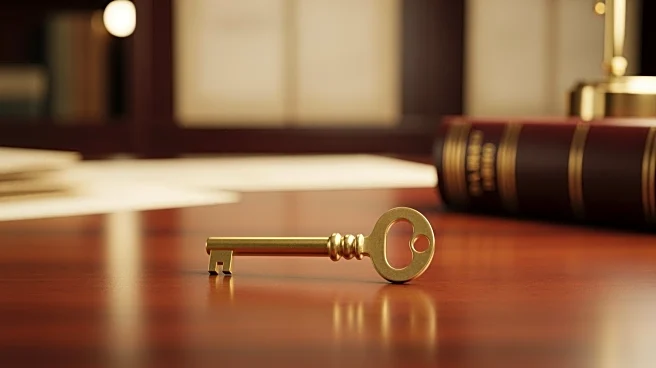What's Happening?
Gary Walters, who served as the White House chief usher for 37 years, has shared his experiences in a new book titled 'White House Memories 1970-2007: Recollections of the Longest-Serving Chief Usher.'
Walters began his career in the Executive Protective Service, protecting Presidents Nixon and Ford, before joining the Usher's Office in 1976. He was promoted to chief usher in 1986, serving under Presidents Reagan, George H.W. Bush, Clinton, and George W. Bush, until his retirement in 2007. Walters' role involved overseeing the residence's maintenance, construction, renovation projects, and food service, managing a staff of 90 to 100 personnel. He recounts significant events, such as clearing the South Lawn for Marine One's landing on 9/11 and handling a smoke incident during a dinner hosted by the Reagans.
Why It's Important?
Walters' reflections provide a unique perspective on the inner workings of the White House, offering insights into the non-political aspects of presidential service. His experiences highlight the critical role of the chief usher in ensuring the smooth operation of the presidential residence, regardless of the political climate. This narrative underscores the importance of institutional continuity and the dedication of staff who serve the presidency, not just individual presidents. Walters' stories, such as the 9/11 response, illustrate the behind-the-scenes efforts that support national leadership during crises, emphasizing the resilience and adaptability required in such roles.
What's Next?
With the release of Walters' book, there may be increased interest in the historical and operational aspects of the White House, potentially leading to further publications or media coverage exploring similar themes. Walters' insights could inspire discussions on the evolution of White House operations and the role of non-political staff in supporting presidential duties. Additionally, his experiences might be used as a reference in training future White House staff, ensuring that the lessons learned from past administrations continue to inform current practices.
Beyond the Headlines
Walters' tenure as chief usher highlights the ethical and cultural dimensions of serving in a non-partisan capacity within a highly political environment. His commitment to serving the presidency, rather than individual presidents, reflects the broader principle of institutional loyalty and the importance of maintaining traditions and standards in government operations. This perspective may contribute to ongoing debates about the role of career staff in political institutions and the balance between political and non-political responsibilities.










